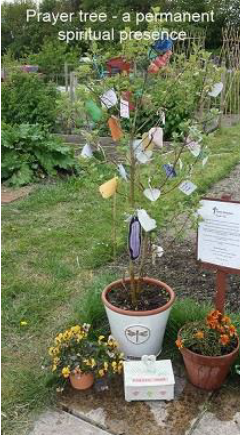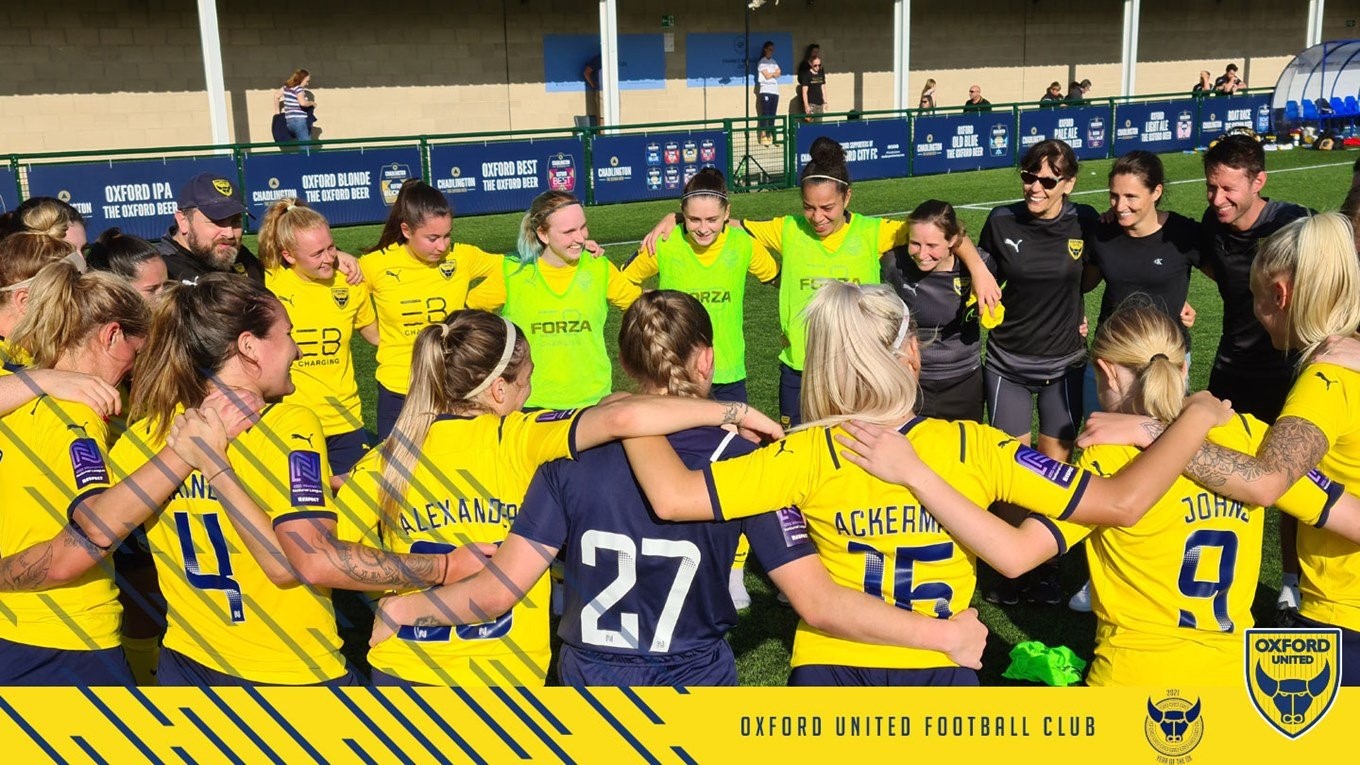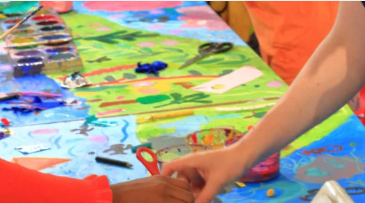The Story of the Charlton-on-Otmoor Fund 2015-24
In 2015 New Road Baptist Church in Oxford received £190,000, from the sale of Charlton on Otmoor Baptist Chapel, which it planted 200 years ago. Drawing on its history of supporting and planting churches over the centuries, the Church Meeting at New Road decided to use this money to fund new work around the county.
A group was formed to oversee the Charlton-on-Otmoor Living Legacy Fund. The makeup of the group has changed in the 9 years since the Trust was started with a mix of people from the Southern Counties Baptist Association and New Road Baptist Church.
The Fund has been available to Baptist Churches in Oxfordshire to ‘engage in new and imaginative expressions of mission’ with their local communities. With an emphasis on ‘new and imaginative’, the Fund has encouraged churches to break new ground, to experiment and try new ways of mission.
Here are some of the Good News Stories coming out of that fund:
We’re in a church which feels like a place to relax, where deeper needs are acknowledged and where the spiritual is accepted as a normal part of life. This is not on a Sunday but a baby and toddler group where refreshments, craft activities, storytelling, singing and dressing up happens in a safe place.
A mother at a young parenting group talks about her alcohol addictions. Another person in the group who has been coming for some time has also enrolled on the church’s Alpha course.
 On an allotment site a flag advertises that the a group of people from a local baptist church is around. They are part of the allotment community. Towards the end of the afternoon chairs, a table and a parasol are set out, tea and coffee are made and some cake is offered. The people from the allotment are invited over. This is where the Church is. On an allotment site a flag advertises that the a group of people from a local baptist church is around. They are part of the allotment community. Towards the end of the afternoon chairs, a table and a parasol are set out, tea and coffee are made and some cake is offered. The people from the allotment are invited over. This is where the Church is.
A couple of young people on placement because they are neither in work or education, learn new skills as they help extend and decorate a new space for the food bank in the church.
A small group meets in a house. There were five, now there can be as many as 20. Among them are 3 families and one of the families has a baby and a 3 year old who have asked for a service of presentation. This is a fledging church. It may or may not establish itself into the dreams of its people but all that matters is, for now, it is serving them well.
In a tea room a group of young people meet with a youth worker supported by the churches in the town. The conversation is easy and reflective as they trust each other with their thoughts about their faith. They have a great sense of belonging, and care for each other deeply. One of them has asked for baptism.
Along a street of shops in one of the larger villages of Oxfordshire a group drawn from local churches offer a listening ear and prayers to anyone who approaches them. They are identified by a banner offering healing on the streets.

At lunch-time in a city centre church people gather for a talk and a discussion on an area of restorative justice. The number these talks attract grow considerably during lockdown when the meetings happen on zoom.
A minister takes possession of a new house on a pioneering new estate of eco housing and self-build properties. This is a church plant and the house is adapted to also be a church as well as a manse. What is not so pioneering is that all the social housing on the estate is identified by having the same coloured doors. The church considers how to challenge this.
 There’s a crowd of about 200 and during the course of the match the chaplain walks around the ground. She’s become a familiar face for many people because she’s always there, often on the turnstile as people enter and she is up for whatever conversation people want to have. At the end of the match she huddles with the team on the pitch who know her well. There’s a crowd of about 200 and during the course of the match the chaplain walks around the ground. She’s become a familiar face for many people because she’s always there, often on the turnstile as people enter and she is up for whatever conversation people want to have. At the end of the match she huddles with the team on the pitch who know her well.
A touring theatre company are performing a play about radicalisation to a group of secondary school students. Afterwards there’s a series of workshops for the students to explore the issue more. A schools worker, supported by the church, will follow up the conversation at the weekly lunchtime club.
Over a number of years a minister develops a relationship with a particular nationality of people who come to the city mainly to study or to work in the health sector. One night a couple arrive with the devastating news that a close family member from home has died. At this time of great need, the minister has become their help. They stay for a number of hours during which time the minister organises their flights home.
A volunteer says that she has found a safe place in a world of terror where she doesn’t have to pretend and where she feels accepted for the person she is.

A child says that the art group he comes to is the highlight of his week. At school he’s been bullied but the art group helps him to talk about it. He says; ’’it cheers me up and makes me feel better about myself”.
A rural church has started a cafe inspired by an enterprising new member. A befriending cafe for isolated people, a space for younger people, a place for crafts and somewhere to go on school holidays, as well as an affordable place to eat compared with the expensive cafes in surrounding villages.
It’s a mid-week afternoon in a room in a baptist church. A group of people from different agencies working with homeless people meet in a city of rising rents and eye-watering house prices. Among them are three homeless and vulnerably housed people. Skilled facilitators help and support them to share their experience, and a six-week course has given them the confidence to tell their story which the agencies and local politicians really need to hear, because unless they do little will change.
 A group of teenage women gather at the fourth of their weekly sessions. They’re half way through a course that is helping them to manage what feels like a very challenging and frightening world. Each of them is beginning to feel more confident to talk openly about the relationships, anger and the emotional issues they face at home, at school and on their ‘phones. One of them talks about how she’s learned to control her anger and how the course has helped her self-esteem; “I’ve joined a football team and put more effort into the drama group at school”. A group of teenage women gather at the fourth of their weekly sessions. They’re half way through a course that is helping them to manage what feels like a very challenging and frightening world. Each of them is beginning to feel more confident to talk openly about the relationships, anger and the emotional issues they face at home, at school and on their ‘phones. One of them talks about how she’s learned to control her anger and how the course has helped her self-esteem; “I’ve joined a football team and put more effort into the drama group at school”.
Three trustees from the Charlton Fund make a visit to one of the projects. They sit in a light, clean and tastefully decorated room with comfortable and welcoming furniture. Behind them large patio doors, paid for by the Trust, leads onto an area where children can play and people can meet. We are shown pictures of what the room was like and how much work has been done to make it a home, a church and place of belonging.
The next month the three trustees meet again to report back to the rest of the group. They meet on zoom, all seven of them. The make up the group has changed in the 9 years since the Trust was started with a mix of people from the Southern Counties Baptist Association and New Road Baptist Church. In 2015 New Road received £190,000, from the sale of Charlton on Otmoor Baptist Chapel, which it planted 200 years ago. Drawing on its history of supporting and planting churches over the centuries, the Church Meeting at New Road decided to use this money to fund new work around the county.
The Charlton-on-Otmoor Living Legacy Fund has been available to Baptist Churches in Oxfordshire to ‘engage in new and imaginative expressions of mission’ with their local communities for 9 years. With an emphasis on ‘new and imaginative’, the Fund has encouraged churches to break new ground, to experiment and try new ways of mission. The sort of things that other trust funds may not look at. It’s offered ‘seed money’ of up to £1,000 for small projects, ‘small grants’ of up to £5,000 which might include changes to a building to make a project happen, ‘people and place grants' of up to £15,000 over 3 years which has funded salaries and running costs and, in the last 3 years, a few larger grants have been awarded to churches engaged in significant social justice projects.
All the money has now been spent and the Fund has been closed. These are just a few little snapshots of the many stories that the trustees have read and heard over the years; from Bloxham to Barton to Bicester, from Witney to Woodstock to Wolvercote, from Cowley to Kings Sutton to Kidlington, from Oxford to Henley to Didcot and Littlemore. Thirteen churches have been supported with grants from £800 to £24,000.
‘New and imaginative ways of mission’ have happened in recording studios and allotments, in football grounds and tea rooms, in community centres and on zoom. They’ve also happened in a parent and toddler group because what’s new and imaginative depends on where you are and what the church has already done and, in this particular case, it was ‘new’. This is the story that we began with where ‘deeper needs are acknowledged and where the spiritual is accepted as a normal part of life’.
The Charlton Fund is a story of churches that have reached out in new and imaginative ways and, as they have done so, they have touched the lives of many people, including the bereaved, the homeless, the isolated, frightened and those living in poverty. This is the work of the kingdom, as Jesus describes it; “I tell you the truth, whatever you did for one of the least of these sisters and brothers of mine, you did for me”.
Trustees of the Charlton-on-Otmoor Living Legacy Fund
March 2024 |